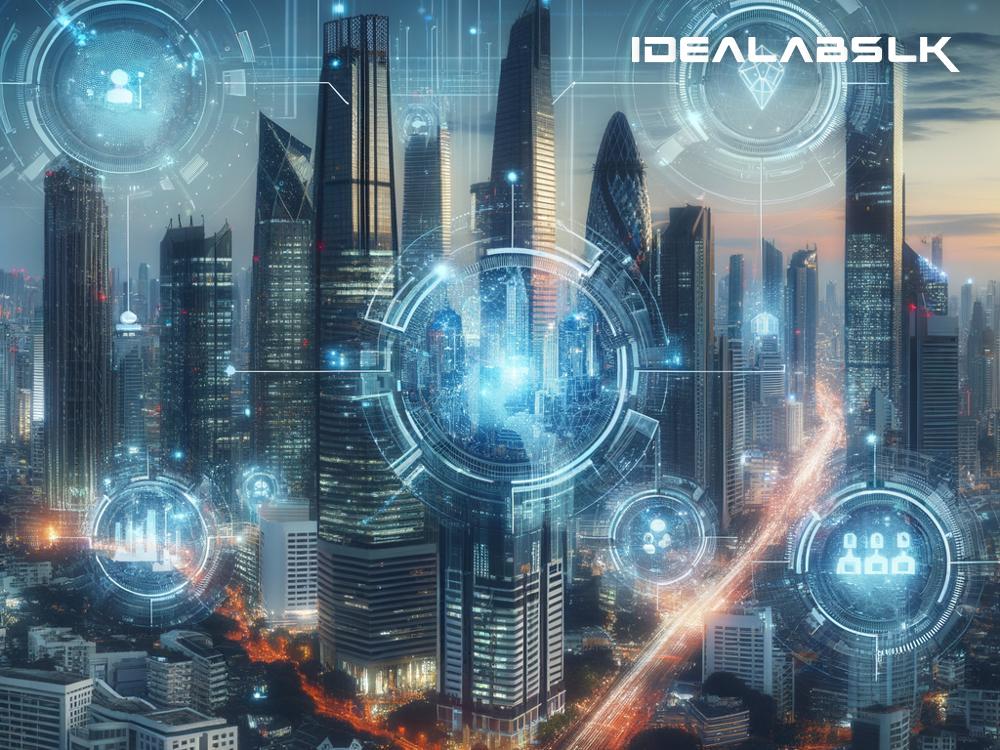Blockchain and AI for Real Estate: The Future of Smart City Developments
In the evolving landscape of technology, two giants stand out for their potential to revolutionize industries: Blockchain and Artificial Intelligence (AI). Together, they're setting the stage for a transformation in real estate, particularly in the development of smart cities. This isn't just a futuristic dream; it's the dawn of a new era where technology makes living spaces safer, more efficient, and incredibly interconnected. Let's break down how blockchain and AI are becoming key players in shaping the future of smart city developments.
Understanding Blockchain and AI
Before diving into their impact on real estate, let's simplify what these technologies entail. Blockchain is essentially a digital ledger that records transactions across many computers. What makes it special is its high security and transparency; once information is recorded, it's very difficult to alter. Imagine it as a notebook that keeps a tamper-proof record of transactions that everyone can verify, but no single person controls.
Artificial Intelligence (AI), on the other hand, is like having a really smart robot that can learn and make decisions. It analyzes data, recognizes patterns, and makes predictions or recommendations based on this information. AI is what powers your virtual assistants, like Siri and Alexa, and it's getting smarter by the day.
Transforming Real Estate with Blockchain and AI
When it comes to real estate, both blockchain and AI offer extraordinary benefits that can lead to smarter, more efficient cities. Here's how:
-
Efficient Property Transactions: Blockchain is revolutionizing the way property transactions are handled by making them faster, more transparent, and secure. With blockchain, the entire process of buying or selling property—from contracts to payment—can happen digitally and without a middleman. This means fewer errors, reduced costs, and a streamlined process that's attractive to everyone involved.
-
Enhanced Security: Security is a top concern for any property owner, and blockchain technology provides a solution. By storing data across a network of computers, blockchain ensures that information, like property records, is nearly impossible to hack. This builds a foundation of trust and reliability in property transactions and information.
-
Smart Contracts: These are self-executing contracts with the terms directly written into code. They automatically enforce and execute the terms of a contract when conditions are met. In real estate, this could mean automatically transferring ownership once payments are verified, reducing the need for intermediaries and making transactions smoother and faster.
-
Predictive Analysis for Investment: AI's predictive capabilities can analyze market trends and make highly accurate predictions about property values and investment opportunities. This insight is invaluable for investors looking to make informed decisions about where to put their money for the best returns.
-
Personalized Experiences: AI can also tailor the search for the perfect home to a buyer's specific preferences, learning from their searches to recommend properties that closely match what they're looking for. This could greatly reduce the time and effort it takes to find a new home.
-
Smart City Management: On a larger scale, AI and blockchain are essential for the operation of smart cities—urban areas that use technology to improve efficiency and quality of life. Blockchain could manage transactions between devices in the city, like paying for parking or managing electricity use, securely and transparently. Similarly, AI could optimize traffic flow, energy consumption, and even emergency services by analyzing data from various sources and making real-time decisions.
The Road Ahead
The potential of blockchain and AI in real estate and smart city development is vast. However, for all its advantages, integrating these technologies into the real world comes with challenges. Issues like data privacy, regulatory hurdles, and the digital divide must be addressed to ensure these advancements benefit everyone equitably.
Nevertheless, the future looks promising. As more developers, investors, and governments recognize the potential of integrating blockchain and AI into real estate, we're moving towards a future where smart cities are not just a concept but a reality. These technologies offer a pathway to more secure, efficient, and responsive urban environments, potentially transforming how we live, work, and interact within our cities.
In conclusion, blockchain and AI are more than just buzzwords; they are the bedrock of future smart city developments. Their integration into real estate promises to redefine urban living, making it smoother, more secure, and far more efficient. As we stand on the brink of this new era, it's an exciting time to watch these advancements unfold and shape our world.

